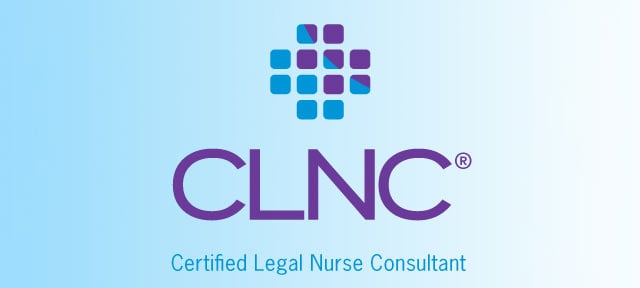As a young baby boomer, I have to face the fact that one day I’ll be old. Not tomorrow and not the next day, but sooner than I want to admit. One good thing is – I’ll have lots of company. The bad thing is – all those Generation Waste kids that will be taking care of us (you know the ones with piercings, tattoos and bad work ethics).
What brought this up? The Center for Medicare and Medicaid Services (CMS) has released a rating system for nursing homes. What a genius idea! Now we can pick our nursing homes the way we pick our vacation hotels (no, they’re not on Priceline yet). The system goes from one to five stars based on factors including inspection records, number of patients developing pressure ulcers, complaint inspections and more (including staffing).
It seems the non-profit facilities had a higher number of five-star nursing homes (I never, ever thought I’d say “five-star” and “nursing home” in the same sentence) that was double the number of five-star for-profit facilities. Interestingly, the number of one-star for-profit nursing homes was double the number of one-star non-profit nursing homes. In other words, these owners put profit before people.
You can read more about this at Medicare’s website and while you’re there, download a handy “Nursing Home Checklist” to take with you when you start looking for your own nursing home. It’s got a fun nursing home locator with a variety of search options so you can see what’s available in your area.
On a serious note, as a Certified Legal Nurse Consultant working on cases involving nursing home residents, I’d be very interested in the rating for the defendant facility and any quality data you can drill down into about that facility. CMS has given the plaintiff’s bar another effective weapon in the fight against evil. The defense bar can use this too – if their facility is highly rated.
Check it out now – before you have to.
Vickie
P.S. If you want to spend your breaks reading an excellent, and moving, novel about nursing homes pick up “Old Friends” by Tracy Kidder. It will make you laugh and cry – sometimes at the same time.









Thanks, Vickie. Having worked in long term care for many years, I was very happy to see you focus your blog on nursing homes. One category of nursing homes that has just about gone out of business is the “mom and pop” category. These small proprietary businesses focus on giving quality care because it is their mission and their pride. Sadly, this along with having to pay high taxes (Kentucky charges a 2% tax on gross -yes, gross, not net- income), is causing them to sell out to the big guys. Also, we need to remind ourselves that some proprietary businesses may be 5-star and some not for profits may be 1-star. We have to go in without prejudice in order to see the whole picture.
Rating nursing homes is a great idea. Although it will be a little longer until I look for my own nursing home, being almost a “generation waste” kid myself and all, sans the tattoos, piercings, and bad work ethics- I’m 24 🙂 I will be soon facing that particular search for my grandparents or parents in the not too distant future.
I have to say it would be a dark day if I had to put my parents in a nursing home with the way they are now. Even the good ones are facing the same issues as our hospitals (understaffing, etc.) but maybe this new rating system will encourage these facilities to do a better job, ensuring that the care of our loved ones is what we could wish.
Vickie,
Having worked in SNF/LTC facilities for the past 11 years, I know all too well what “corporate priorities” are nowadays for these facilities. Caring staff have to struggle each and every day in order to provide even the most basic care to their residents. There is Never Enough…Never Enough time to give care the way you want to, and know these folks deserve…Never Enough supplies to give the care even if you had the time…and Never Enough staff to give the care, even if you had the supplies and the time! I wholeheartedly support a rating system for nursing homes. Maybe one day, if enough people pay heed to nursing home ratings, corporate healthcare will finally get the message!
Hello fellow colleagues,
To begin my nursing career I worked as a cna at an “upscale retirement home”. Working there is what really made me want to become a RN. The stuff I saw at the ripe old age of 18 was appalling, and i was determined to change it.
Healthy care has become increasingly more “big business” over the past several years. Profit and not for profit are misnomers. Everyone and every company is all about the bottom dollar. They have to be in order to remain a business. (Sad but true). However the quality of your service should be the driving force to back a business. My husband is in business he has his MBA from Notre Dame, i can’t recall a single time he has visited the hospital, patient or otherwise, that he wasn’t just appalled.
He always gets on his soap box about business ethics. He Say’s if healthcare was any other kind of “business” it would have been out of business long ago. Unfortunately we are just not there yet, but I am holding out hope, that someday healthcare will face the same or more rigorous scrutiny when it comes to customer satisfaction and relations.
Again I stress, as in my previous blog comments, we can only control a small part of the industry-OURSELVES. Yes we are all put out by time constraints, lack of staff, incompetent staff, and general lack of regard to our profession. So what can we do, we can demand more staff, threaten to quit, complain to the administration and everyone else that will listen, but what will that accomplish? Instead of complaining about the situation, discover some solutions. Nurse retention programs, patient staff ratio’s, how to make healthcare more cost effective and managed better. Which ever environment you work in, you and you alone can make it better. How much better? I challenge you to find out. I have changed nearly every environment I have worked in.(In some form or fashion). For example I worked in a busy ED that was always over crowded, understaffed and just a mecca for complaints from patients and staff alike. So I looked at the “flow” of the department and decided that was the route cause. With that I went to my director and ask if I could pilot a quick care(QC) program for the ED. She was a new director so she was eager to improve our department and her image. (opportunity) I created a QC department that took care of the non urgent cases which in turn freed up the main ED rooms and staff. One RN and one DR stayed in the QC and seen patients with minor injuries or complaints. The patients seen there were still charged the same but were triaged separately and subsequently seen, treated and released usually with in an hour or less. I also created customer satisfaction surveys for the QC and the results were so astounding that the CEO of the hospital wrote me a personal letter and sent it to my home address thanking me for my efforts.
I worked at a large prestigious hospital (cancer center) and it bothered me so much that I had to send my “sick and tired” patients out (across the street to another facility) for any cardiac issues or procedures. So I went to administration and got permission to open up a cardiac unit so my patients would not have to travel to get cardiac care.
My point being, it is still our responsibility as nurses and professionals to make changes on the front lines until we are able to make them common place with government.
“It is not the critic who counts; not the man who points out how the strong man stumbles, or where the doer of deeds could have done them better. The credit belongs to the man who is actually in the arena, whose face is marred by dust and sweat and blood; who strives valiantly; who errs, who comes up short again and again, because there is no error without shortcoming; but who does actually strive to do the deeds; who knows great enthusiasms, the great devotions; who spends himself in a worthy cause; who at the end best knows in the end the triumph of high achievement, and who at worst, if he fails, at least fails while daring greatly, so that his place shall never be with those cold and timid souls who neither know victory nor defeat.” T.R.
OK, here we go. Yes, as a long term care nurse for over 20 years and now working in risk management for multiple facilities, I agree that rating long term care facilities may be a good idea because there are obviously some out there that provide poor care and this should be identified.
However, the current system that was used by CMS to rate the facilities is not the way to do it.
Data used for these ratings is very old data in most cases and probably does not show an accurate picture of the current facility.
Staffing as mentioned also played a very high role in these scores, which should definitely enter into the scoring procedure but facilities such as LTACs who are required to staff with full time RNs around the clock score superbly while smaller facilities who may only have one RN on staff (which meets the requirements set forth by CMS) score poorly in this area.
Also if a facility has an annual survey and does not score highly, though these might be very minimal deficiencies, it also affects the scores.
I do not believe the current ratings system is accurate and for those looking for a good nursing facility for placement of a loved one or a great place to work I would recommend they not use this as a guide.
As Vickie points out, visit the facility, several times and during several times of the day. Ask tons of questions, observe meal times and food service, response by the staff to residents and number of staff available at these different times. Talk to other family members if possible to get their feedback on the care provided. Look at the facility’s annual survey results in the facility as well as the staffing patterns which they are required by law to have posted.
Please don’t rely on the government to make these choices for you. There are some great facilities out there that provide very caring service to their residents.
A rating system of long term care facilities is going to be an indispensable part of reimbursement because long term care is here to stay. I am at the tail end of the baby boomer generation and long term care insurance is the wave of the future to prevent our inheritences to our children from being lost to health care. Insurers will be looking hard at those ratings as well. What third party insurerers are going to cover hospital acquired complications? Look at Medicare reimbursement now. Uncle Sam is drawing a line in the sand and acute care hospitals dare not cross it, less they risk loss of reimbursement. Long term care facilities that fall short on patient satisfaction scores are likely risking the health and safety of their patients as well and threaten the very survival of their existence. I believe that a dual system of government rating and private customer rating would benefit consumers the most.
It’s great to look at ratings, staffing and surveys of nursing homes but it’s equally important to do a random visit especially on weekends after state health inspection/surveys are completed. Having worked at several facilities in the past, I found that prior to the survey nursing homes are generally prepared for unannounced surveys. But a lot changes after the survey, most notably the weekend staffing.
The American Nurses Association reported that charges against New York’s Sentosa nurses were dismissed. These nurses recognized patient endangerment and deplorable working conditions at a nursing facility. A visit to a nursing home is always best practice in order to talk to the staff and residents.
My take on this is that the non-for profit homes are just as concerned about profit…they just manifest it differently: They know that producing quality keeps their beds filled and keeping their beds filled keeps their coffers filled. They also are allowed to charge whatever they desire, and usually they provide service to much less of a Medicaid clientele than the for-profit homes.
The government, who puts the “stars” on these homes, is the one who pays less than $100 per day for the Medicaid residents in most states, and requires the same level of care as if they were actually paying for their care. Try providing housekeeping staff and products, laundry staff and products, maintenance staff and products, dietary staff and food, social service staff, activity staff and supplies, nursing professionals and supplies, pharmacy supplies, business office staff and supplies, medical record staff and supplies, therapy staff and supplies…not to mention staff development, human resources, MDS, Admissions, Administrator, and Marketing all for around $100/day. This is the only business I know of where the government requires that you provide service at a loss. Do you really think all of this can be provided, even at the most cost-effective rate, for $100/day?
I have worked for both for-profit homes and not-for-profit homes. The staff are generally the same—very caring and concerned. It’s just that they’re supplied with different tools because the owners are re-imbursed at different rates. Those doing the Medicaid work are the ones who truly care—they’re willing to go out there and TRY to do good work for these seniors, even though they know that every day of their working life they will be beat up by the system, by the families who are in poverty–thus locked into this system, and by the government who created this system. I enjoy sewing in my spare time: When I was using a $100 Singer sewing machine, I sewed a straight line and my products looked ok. When I graduated to a $1,000 Viking sewing machine, I still sewed a straight line and my products looked ok—but better than ok, my products had stitches that were all uniform in size and never had more tension in one than in another, etc. It wasn’t the person sewing…it was the tool that made the difference.
We have a HUGE problem in our society, and you are right to say we need to pay attention. However, it is important to realize that the difference in quality of care has nothing to do with the for-profit/not-for profit other than the tools that can be purchased.
OK…you got me on a soapbox and I’m jumping off now. Always stay balanced when you think long-term care: One of the reasons it’s so hard is that no one wants to get old, go to a nursing home, or die. And no one in long-term care wants you to go to a nursing home either…unless you need it. Nursing homes are for when there is absolutely no other way to care for someone…after you’ve exhausted all other avenues. THEN the nursing home is there to help with what is an impossible task. This does not mean that they will be perfect, but rather that they will be able to help with tasks that would have been impossible without them.
There is a rating system for home health agencies also.
http://www.medicare.gov/HHCompare/
This is based on their OASIS information (the assessment form that is done at each admission and every recertification q62 days.)
After becoming a CLNC® consultant in August 2007 I was very excited about my new career. When I took the class I was working for a home health/personal care agency. While I was getting my new CLNC® business together I got fired because I decided to “rock the boat” at my place of employment regarding poor ethics and patients not being cared for properly, especially in the personal care division of the company.
Right in the middle of my new adventure and venture I stopped and opened my own personal care company. It took about 6 weeks to get up and running and that was a truly a miracle! I knew it was the right thing to do. Of course, Medicaid is our primary payer source. Medicaid’s volumes of rules and regulations are what I call a joke because they do not enforce all the rules and regulations, however, the admin costs are outrageous. Medicaid stated that they would perform an audit 60 days after we received our first client. We have not seen them yet and it is a year later.
The goal of personal care is to keep the elderly and disabled OUT of the long term care facilities. So many people do not know that personal care is available. It is much better to keep folks in their own homes with their loved ones and in familiar surroundings. Personal care is not the answer for everyone, but in many cases is feasible. I believe that educating the public regarding the availability of personal care services in the home could eliminate the dread of possible nursing home placement. Some of our clients have to make copayments, but it is still more economical then nursing home placement and much nicer. We also care for people with long term care insurance.
Oh by the way, if it had not been for you, Vickie, convincing me that a nurse can do anything, I would not have been able to start my own personal care business. Thank you. I am now ready to get back to my CLNC® business. I’m looking forward to seeing you in San Antonio in March.
I started my nursing career as a LVN in several nursing homes. I thought I could make a difference by continuing my education. I found the only difference I could make was in my eight hour shift. Sad to say, I did not return to nursing home work. I have spent my RN days in the hospital setting. That is another subject.
I am finding that in service oriented businesses there are those who care and will go the extra mile, and then there are those that have room for improvement on their evals.
Make it a good one
Nursing homes often get a bad rap. I have worked in nursing homes. The people there work very hard under tough conditions. Nursing homes are the most regulated business in the United States. Of course there are good and bad nursing homes. As an expert witness I have worked for the defense and for the plaintiff. The ranking of the nursing home has been brought into the case as evidence for or against the nursing home. But what appears to be is often an illusion. You must look at the whole medical record as it pertains to the individual case. Some of the nursing homes that are rated high and appear to be the best are in reality the worst and vice versa. So, yes, take the rating into consideration, but remember it is only one piece to the puzzle.